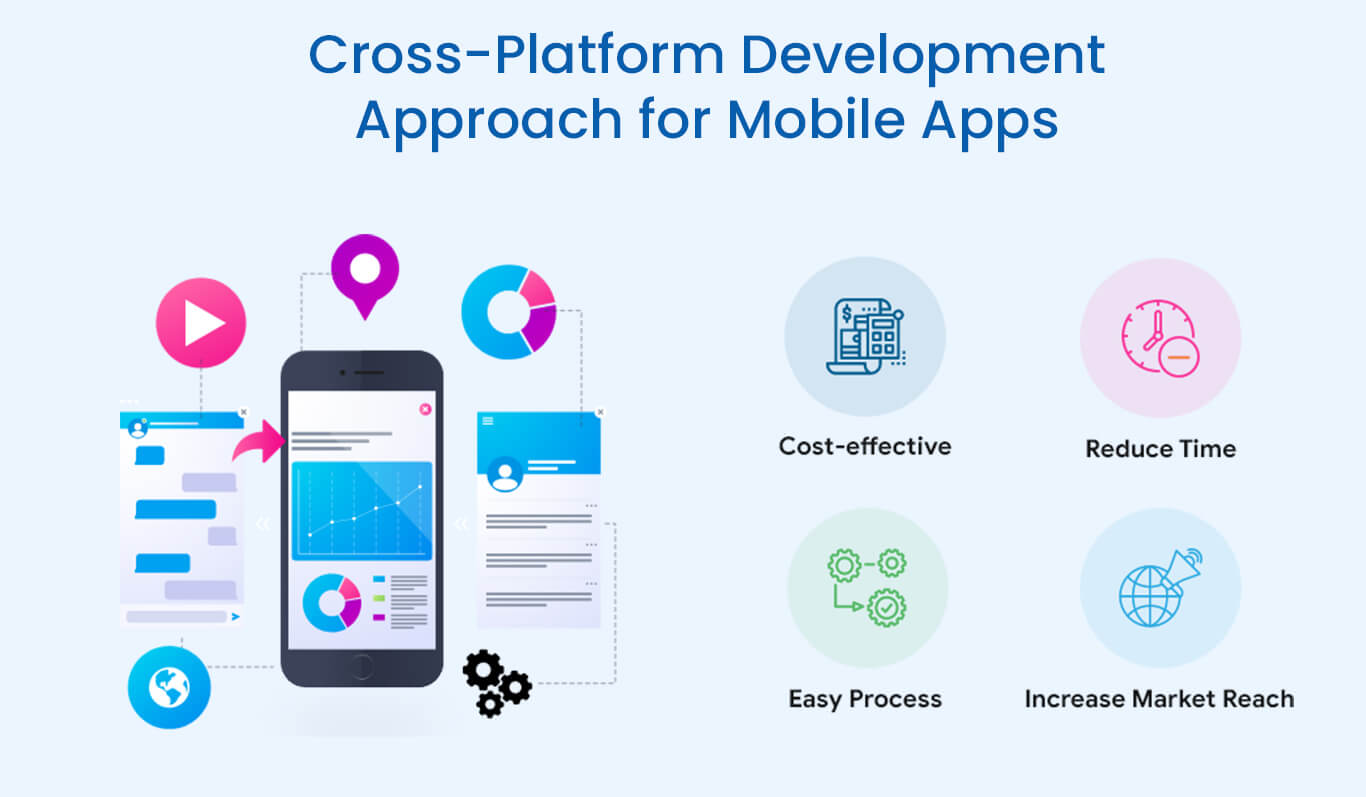Introduction
With the rapid evolution of technology, the way we interact with software and applications has changed dramatically. Gone are the days when users were restricted to using apps on a single platform. Today, the demand for cross-platform apps has grown exponentially, driven by the need for seamless user experiences across various devices and operating systems. This article explores the emergence of cross-platform apps, their benefits and challenges, and the technologies that make them possible.
I. Understanding Cross-Platform Apps
Cross-platform apps, as the name suggests, are applications that can run on multiple platforms, such as Windows, macOS, iOS, Android, and the web. These apps are designed to adapt to the unique specifications of each platform while maintaining a consistent user experience. The main objective of cross-platform development is to reach a broader audience and reduce development time and costs by sharing a single codebase across platforms.
II. The Advantages of Cross-Platform Apps
- Wider Audience Reach
One of the primary advantages of cross-platform apps is their ability to reach a larger audience. By targeting multiple platforms, developers can tap into diverse user bases and increase their app’s potential user base significantly. This broad reach can be especially beneficial for businesses looking to expand their customer base globally.
- Cost-Effectiveness
Developing separate apps for each platform can be costly and time-consuming. Cross-platform app development streamlines the process by enabling developers to use a single codebase for multiple platforms, reducing development time and costs. Additionally, cross-platform development allows businesses to leverage existing development teams and resources more efficiently.
- Faster Time to Market
In today’s competitive app market, speed to market is crucial. Cross-platform development enables faster deployment of apps since developers do not need to build separate apps for different platforms. This accelerated development process can give businesses a significant competitive advantage.
- Consistent User Experience
Creating a consistent user experience across platforms is vital for maintaining brand identity and user satisfaction. Cross-platform apps enable developers to design and implement uniform user interfaces and features, ensuring that users have a seamless experience regardless of the device they use.
III. Cross-Platform Development Approaches
Several approaches are available for cross-platform app development, each with its own set of advantages and limitations:
- Hybrid Apps
Hybrid apps use web technologies such as HTML, CSS, and JavaScript to create a single codebase that runs inside a native container. This container allows the app to be deployed on multiple platforms while still accessing some native device capabilities. Popular frameworks for hybrid app development include Apache Cordova and Ionic.
- Native Cross-Platform Development
Native cross-platform development involves using frameworks that allow developers to write code in a single language, which is then translated into native code for each platform. This approach provides access to native features and can deliver better performance than hybrid apps. Popular frameworks for native cross-platform development include React Native and Xamarin.
- Progressive Web Apps (PWAs)
PWAs are web applications that utilize modern web technologies to provide an app-like experience on various devices. PWAs are platform-independent and can be accessed through web browsers, making them a popular choice for businesses aiming to provide a consistent experience across platforms.
IV. Challenges in Cross-Platform App Development
While cross-platform app development offers numerous benefits, it also comes with its own set of challenges:
- Performance Optimization
Achieving optimal performance across multiple platforms can be challenging. Different devices and operating systems have varying hardware capabilities, which can impact the app’s speed and responsiveness. Developers must carefully optimize their apps to ensure a smooth experience for all users.
- User Interface (UI) Design
Designing a UI that looks and feels native on each platform can be demanding. Each operating system has its own design guidelines and user expectations, and developers must strike a balance between adhering to these guidelines and maintaining a consistent brand identity.
- Native Feature Compatibility
Not all native features of a platform are accessible through cross-platform development frameworks. Developers may encounter limitations in accessing certain device-specific capabilities, which can affect the app’s functionality and user experience.
- Maintenance and Updates
As different platforms evolve, app maintenance and updates become more complex. Changes in platform specifications may require modifications to the app’s codebase to ensure continued compatibility and optimal performance.
V. Future Trends in Cross-Platform App Development
The cross-platform app development landscape continues to evolve, and several trends are likely to shape its future:
- AI and ML Integration
The integration of artificial intelligence (AI) and machine learning (ML) technologies in cross-platform apps will enhance user experiences by providing personalized and context-aware interactions.
- Enhanced Security Measures
As cross-platform apps become more prevalent, security will become an even greater concern. Developers will need to implement robust security measures to protect user data and ensure safe app usage across multiple platforms.
- Real-Time Collaboration
Real-time collaboration features will become increasingly important for cross-platform apps, enabling users to interact seamlessly with others across various devices.
Conclusion
Cross-platform apps have become an indispensable part of the modern app development landscape, offering a range of benefits for both developers and users. They provide a cost-effective way to reach a broader audience, maintain a consistent user experience, and streamline the development process. While challenges remain, the continuous advancement of cross-platform development frameworks and technologies promises a bright future for these versatile applications. As technology continues to evolve, we can expect cross-platform apps to play an even more prominent role in shaping the way we interact with software across devices and operating systems.

